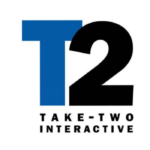Clear goals, flexible work environment, freedom to make decisions, opportunities for growth and use of the latest technology seem to be some of the sough-after factors for Gen Y.
What do millennials expect from their organisations? If I have a few members of Gen Y in my team, should I ensure that they are engaged fully to give maximum output? How can I ensure out-of-the-box suggestions/ creative solutions to the typical problems being faced by me/ my organisation?
In my opinion, the Gen Y professionals need the following things so that the organisations are in a better position to reap benefits:
Absolute clarity of performance indicators and deliverables
The most important thing is to state what is expected of them —targets/goals / KRAs/ BSC — and explain the parameters based on which they will be judged. In simple words, what can affect the pay raise and performance appraisal so that they can decide on the parameters to avoid or work on, to improve their performance.
Trust factor, freedom of work and no micro management
Once the trust is established in the employees, they expect freedom of work and decision making. Micro management on any petty issue ultimately results in frustration due to the burden of excess reporting. At times, it daunts the boss–subordinate relationship also. Organisations should have some initiatives like skip-level meetings or one-to-one forums where this factor can be constantly checked and improved to ensure greater benefits for the organisation and the individual.
Flexible work environment
This is the most vital aspect of employee retention, specially when it comes to Gen Y, where the employees expect clarity of goals and deliverables along with timelines. Organisations should give them the freedom to manage their work in the most feasible manner.
Technology has enabled organisations to offer various options for the same like accessing the official mails using smart phones (in accordance with the safety and IT policies of the company, of course) and complying with the targets from the client side or ‘work from home’ on certain days, etc. In the end, it is the result that matters, which is anyway the agreed parameter. Work–life balance plays a crucial role when it comes to the actual reason of exit. Organisations should emphasise on providing more and more work–life balance through employee engagement initiatives.
No “Shree – Ji” culture

In many organisations (mainly family-run businesses), where a traditional culture is observed, the mark of seniority is a “shree” at the beginning and a ‘ji’ at the end of the name. This sounds interesting but feels strange to this new cadre of employees, when they are addressed that way or expected to do. The millennials are more open minded and expect a less formal or a more friendly approach at work.
‘It’s my pay, I should get it my way’
Gone are the days when the employees were working for pension and other retirals of fixed-pay salaries. Gen Y expects a more flexible system for them to work out the best and tax-friendly structure for them. Many of them want more percentage in variable pay where clearly communicated, smart, goals-based and periodically evaluated performance should be the only criteria and nothing else. If organisations intend to keep the employees of this cadre happy, then strong emphasis should be laid on the salary structure, which can have a mixed blend of all. In today’s technology-driven environment, the management of a flexi structure is not that challenging, even though there may be a different structure for each employee.
The “Mann kii baat “ forum
Employees want organisations to listen to them and prefer a forum where they can ventilate their feelings —personal as well as professional. Many companies today have tied up with counsellors where a toll-free number is available for employees to speak to experts, seek guidance or simply vent their feelings. The system is very effective.
They Need 4 G
4G is a vital tonic, which the Gen Y needs from employers so that they can also give much in return and end up in a win-win situation.
Growth, growth, growth
Growth in terms of responsibilities, flexibility, position, team size and of course, money is what they pursue and seek. Organisations capable of providing growth, are the ones that are leading in the market today.
Global reach
Many organisations offer global assignments to employees. Gen Y prefers to work with such organisations of repute where the growth opportunities are not just limited to a specific country, but where the profile can take them to a global position anywhere across the continents. A decent stint abroad certainly adds flavours to their profiles, and at the same time, provides opportunities to learn the global techniques being adopted for the tasks they are performing. Such global assignments by organisations often result in retention of talent in a fiercely competitive scenario.
Generation Tech
The technology-savvy generation likes to try their hands on the latest gadgets and apps and prefer to apply trendy and advanced software to work in order to come up with creative tech solutions at the workplace. Gone are the days when papers were in use. Now, the minutes of the meetings are taken down on smart phones, messages are conveyed through whatsapp group posts, documents are circulated through image share and proofs are kept in the form of saved chat boxes. The Gen Y is really looking for a working environment filled with gadgets. In many organisations, like advertising agencies or companies engaged in R & D, this is becoming a reality.
Gender Equality/fair treatment to all
There are many manufacturing or non-service sector organisations which have a ’traditional’ mindset for shop floor employees , specially women. For them, women are a secondary preference (and for some activities – not preferred at all) on the shop floor. Such a mindset leads to the rejection of 50 per cent of the recruitment choices and ignoring of some of the best talents. Organisations today should seriously consider having a diverse work force, even on the shop floor in order to nurture the potential of women employees and use their creativity for the benefit of one and all.
(The author is himself a millennial and senior manager, HR, at Siemens).
Value our content... contribute towards our growth. Even a small contribution a month would be of great help for us.
Since eight years, we have been serving the industry through daily news and stories. Our content is free for all and we plan to keep it that way.
Support HRKatha. Pay Here (All it takes is a minute)





































Good Insights ! I agree to the pointers being a millenial myself .